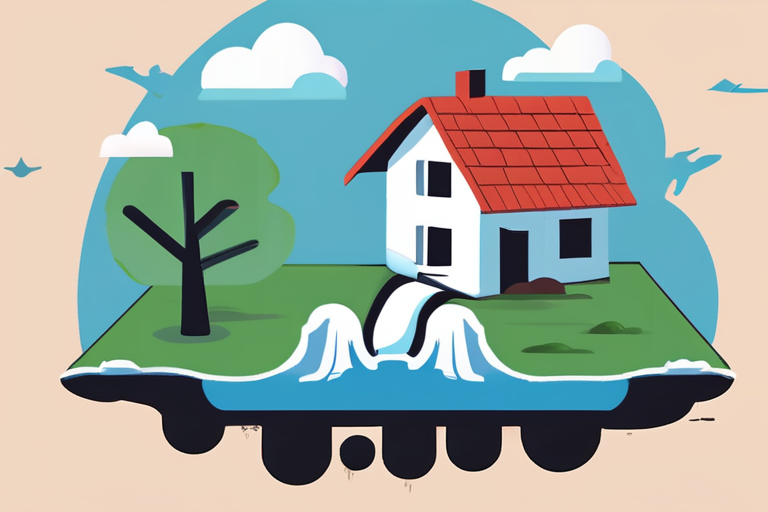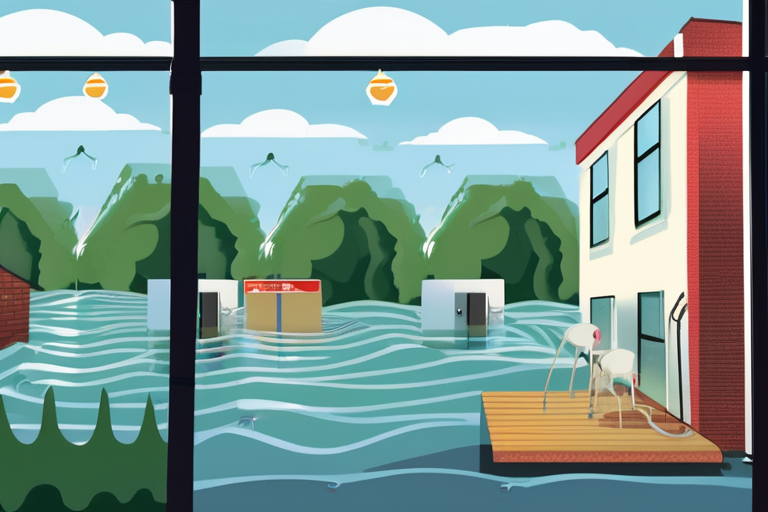Flood Insurance System on Shaky Ground: Experts Predict Catastrophic Consequences


Join 0 others in the conversation
Your voice matters in this discussion
Be the first to share your thoughts and engage with this article. Your perspective matters!
Discover articles from our community

 Hoppi
Hoppi

 Hoppi
Hoppi

 Hoppi
Hoppi

 Hoppi
Hoppi

 Hoppi
Hoppi

 Hoppi
Hoppi

Warming Planet Fuels Unaffordable Home Insurance Crisis A devastating trend is unfolding in coastal communities worldwide, as rising sea levels …

Hoppi

Warming Planet Makes Home Insurance Increasingly Unaffordable A devastating series of hurricanes has ravaged Sanibel Island, Florida, leaving thousands of …

Hoppi

Hurricane Helene's Lingering Impact: Assessing the Effectiveness of RenewNC As the recovery efforts from Hurricane Helene continue in western North …

Hoppi

Hurricane Helene Recovery Efforts: A Closer Look at RenewNC's Impact As the recovery efforts from Hurricane Helene continue in western …

Hoppi

Hurricane Helene Recovery Efforts: A Closer Look at RenewNC's Impact The aftermath of Hurricane Helene has left a trail of …

Hoppi

America's Flood Insurance System Doomed to Fail A devastating summer of floods has left thousands of homeowners reeling, with the …

Hoppi